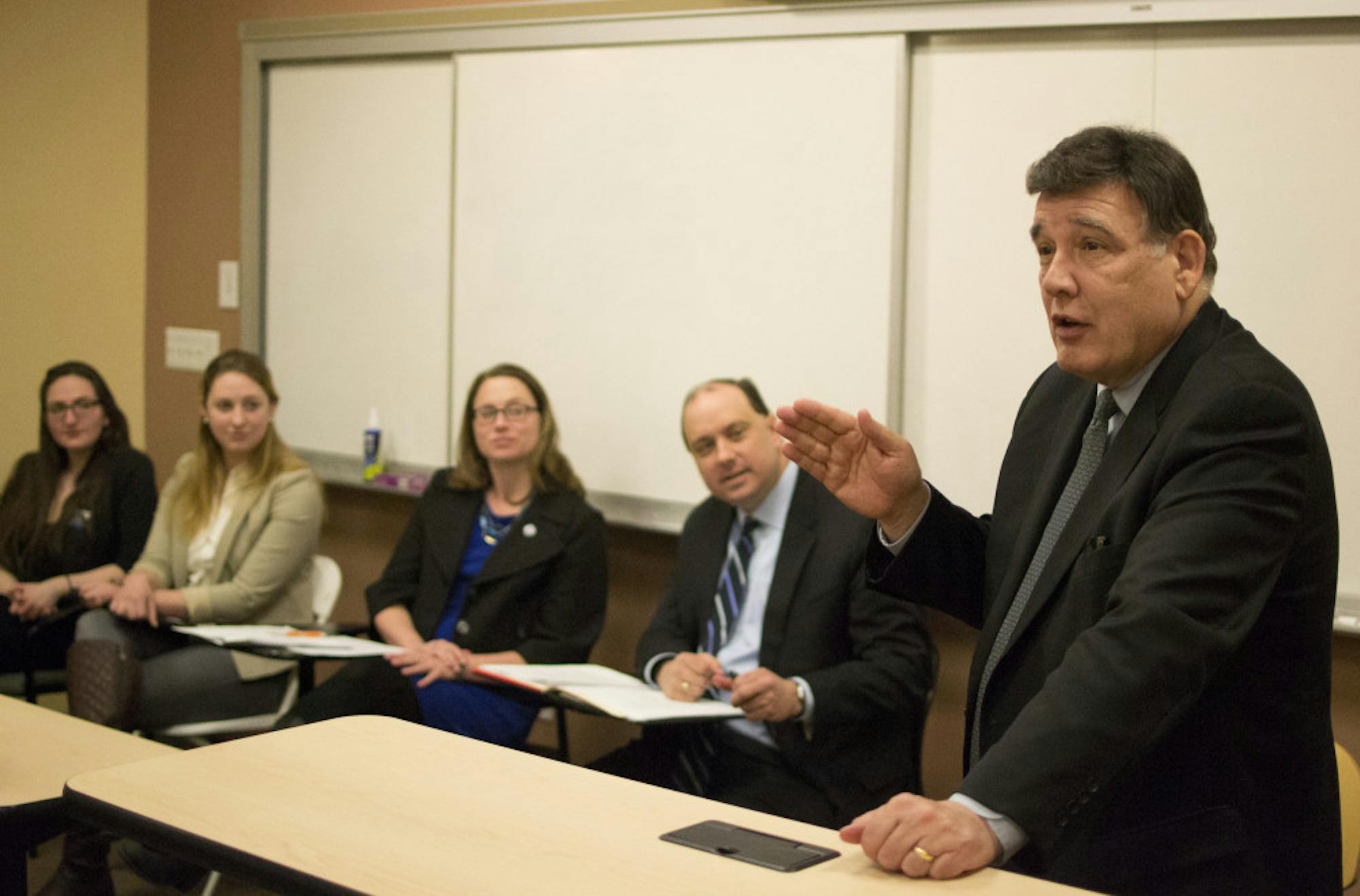Local politicians, environmental advocates and students discussed climate change at a panel event last night in the Cabot Intercultural Center. The talk, titled “Climate Change: How Massachusetts Can Lead The Way,” was hosted by the Tufts Sustainability Collective and Environment Massachusetts.
The event featured panelists including State Senator James B. Eldridge, State Senator Marc Pacheco, State Representative Christine Barber and Tufts Energy Group President Ellen Osborn. The panel was moderated by Environment Massachusetts’ campaign organizer Julia Dougherty.
Dougherty opened up the event by explaining that climate change is an issue that needs to be addressed immediately, and that Massachusetts has a critical role to play in influencing how the rest of the world acts.
“Climate change isn’t some far off issue, it’s happening right now, right here, and what we do here in Massachusetts really matters and will have national and international implications,” she said.
Dougherty then asked the panelists why it is important for Massachusetts to be a national leader in combating climate change.
Pacheco said that Massachusetts should aspire to set a climate standard for other states to meet.
“What we’re doing does make a difference, impacts and educates other states and helps us partner with other countries," he said. "We need to try to see what we can do as a society here in Massachusetts to curb climate change so that we could do our part as one state and hopefully be a model for other states.”
Barber explained some of the projects that communities like Medford and Somerville are undertaking to lead in energy efficiency. She said that Somerville is exploring where it produces the most greenhouse gases, and is looking into how small changes can help communities fight the effects of climate change. Some projects include implementing LED lighting within street lights, forming plans for electric car stations and expanding bike lanes.
“It’s important to look at what we’re doing here on the local level as well, and Somerville and Medford are green communities leading the state,” Barber said.
Osborn said that college students -- Tufts students in particular -- have great opportunities to get involved with these issues and to make an impact on a wider scale.
“Students just have such a huge role to play with engaging in local policies in Massachusetts and to really push forward these issues," she said. "We need to be those people who are pushing on these issues.”
Eldridge said that investing in clean energy also will help the Massachusetts economy and job pool.
“Clean energy policy is good for Massachusetts because not only does it combat climate change but it creates thousands of jobs and is also a boon for the economy,” he said.
All of the panelists emphasized the role that the public can play in influencing climate change policy. Pacheco explained the need for public action to influence representatives.
“It is up to the political will of the constituents of Massachusetts as to what they want from their government on this issue," he said. "People need to act in order to get political leaders to act.”
Eldridge also asked for the public to get involved with issues that they are passionate about.
“There are an incredible number of grassroots organizations, and I really ask for your help even more because we are in a bit of a log jam in legislation,” he said.
Osborn said that young people are especially important in advocating for policy change.
“Students have such a good opportunity to get involved and can use this time to get engaged with all of these issues," she said. "Take this time as a responsibility and advocate for the things you believe in.”
Barber spoke about the citizen advocates in Medford and Somerville, and how they influence their local representatives.
“City officials take this issue seriously because there are huge groups in the communities that are involved and push the city to do more," she said. "A lot of citizens push the cities to be leaders in coming up with good solutions.”
Pacheco added that event attendees can advocate to ensure that necessary policies are implemented.
"We have a tremendous future ahead, you just have to demand politicians to do the right thing and show them where [clean energy practices] are working,” Pacheco said.
State legislators discuss Massachusetts' role in combating climate change

Massachusetts State Senator Marc Pacheco speaks at "Climate Change: How Massachusetts Can Lead The Way," a panel hosted by the Tufts Sustainability Collective and Environment Massachusetts in Cabot Intercultural Center on Feb. 18.





